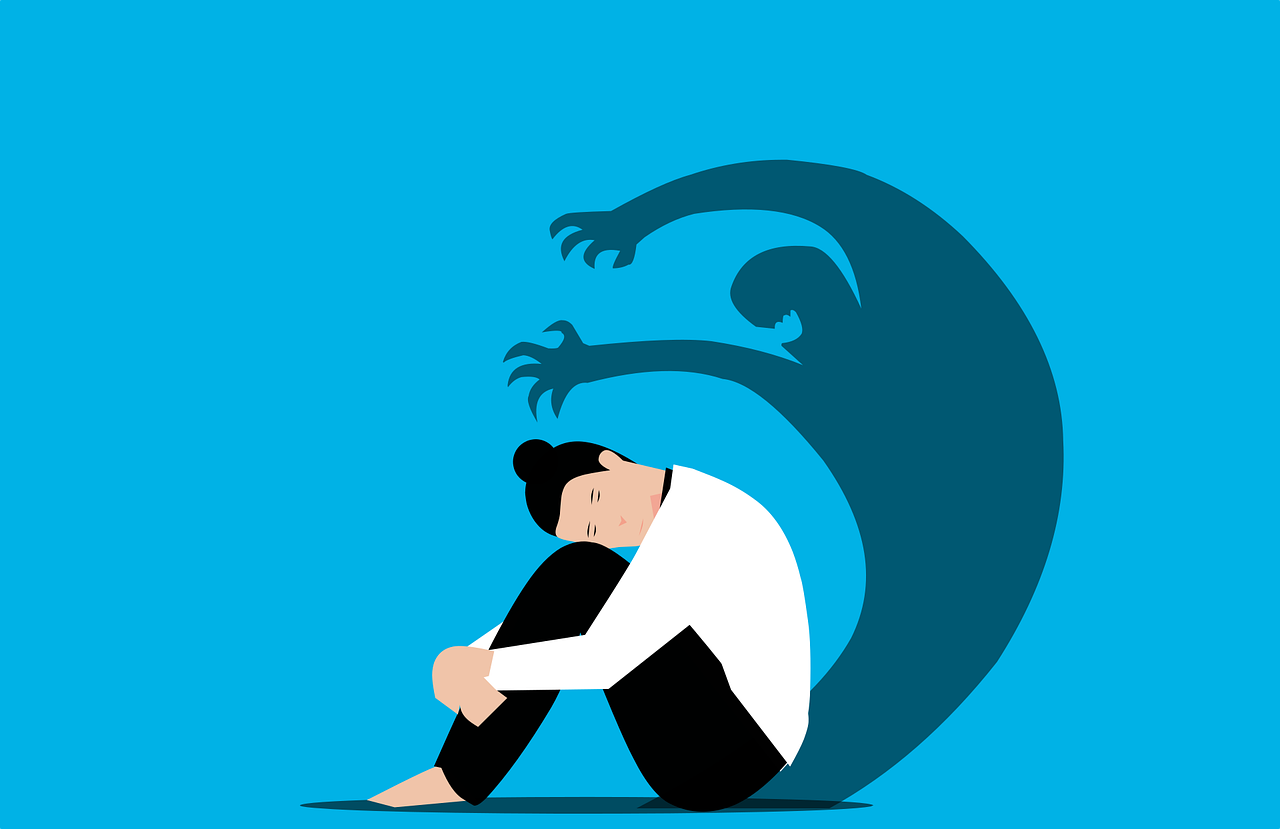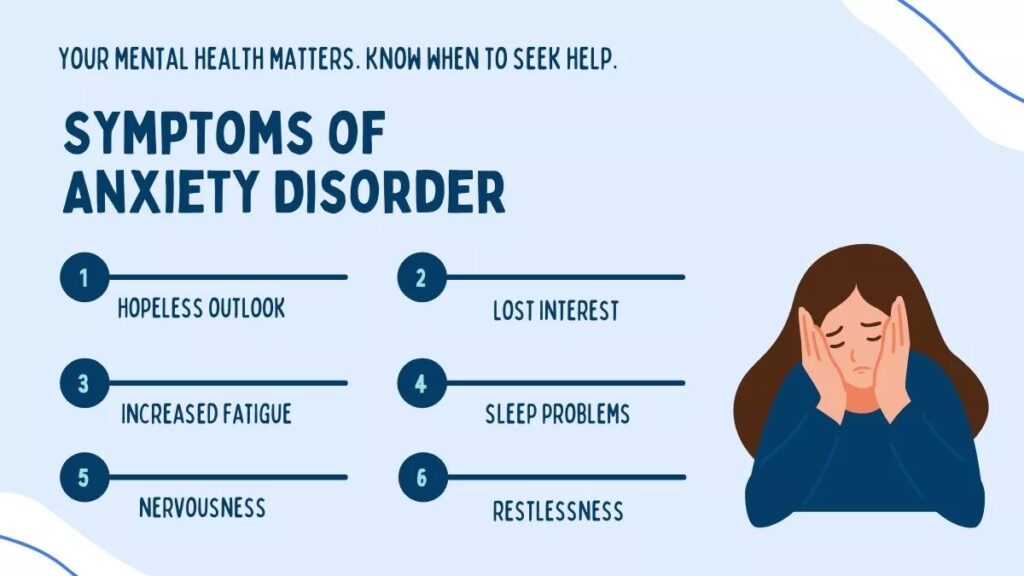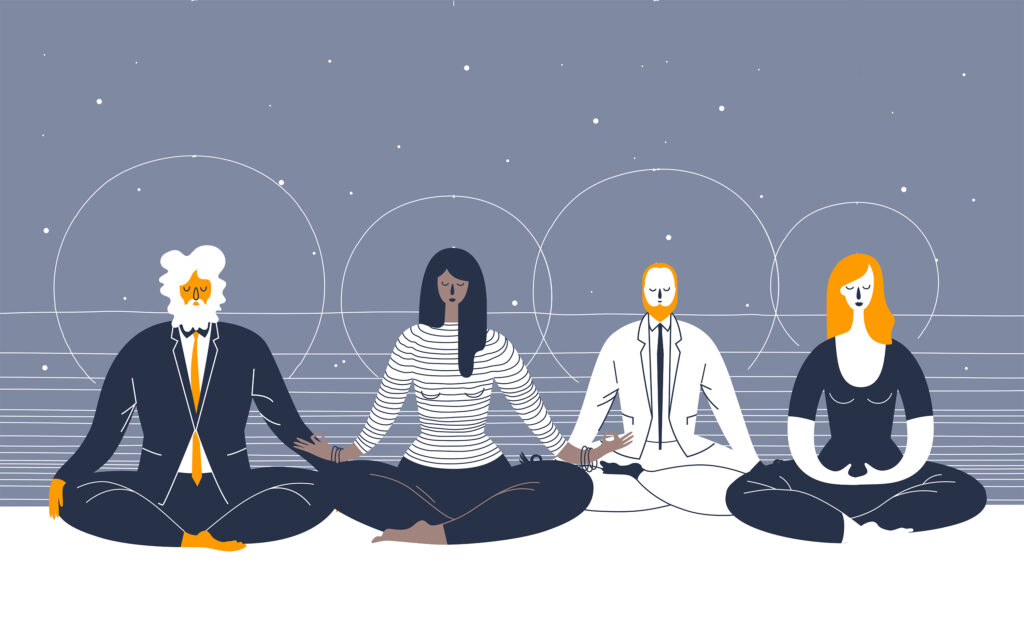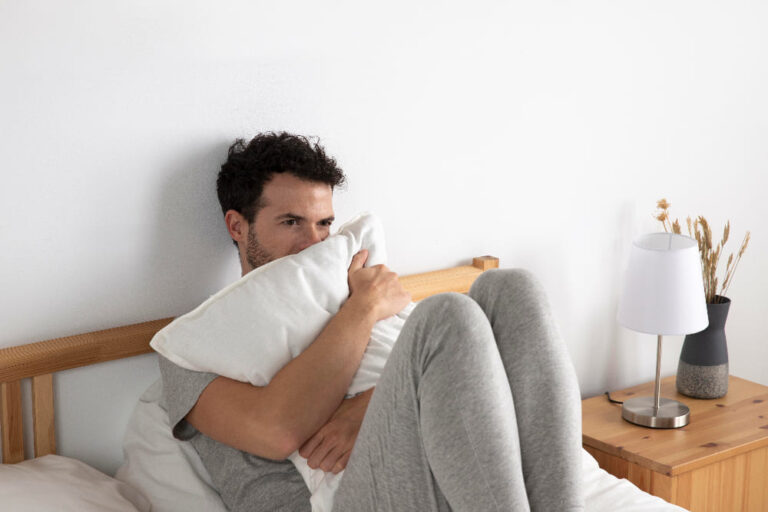How to Cope with Anxiety: 10 Effective Strategies and Tips

Understanding Anxiety: Exploring the Causes and Symptoms

Anxiety is a complex mental health condition that affects millions of people worldwide. While it is normal to feel anxious in certain situations, such as before a big presentation or a job interview, chronic anxiety can significantly impact a person’s daily life. Understanding the causes and symptoms of anxiety is key to effectively managing this condition.
The causes of anxiety can vary from person to person, as it is often influenced by a combination of biological, environmental, and psychological factors. Family history of anxiety disorders, imbalances in brain chemistry, traumatic life events, and chronic medical conditions are some of the biological factors that can contribute to anxiety. Environmental factors, such as high stress levels, substance abuse, or a history of abuse or neglect, can also play a role in the development of anxiety. In addition, certain personality traits, such as perfectionism or a tendency to overthink, can make individuals more susceptible to anxiety.
When it comes to symptoms, anxiety can manifest in a variety of ways, both physically and emotionally. Physical symptoms of anxiety may include rapid heartbeat, shortness of breath, chest tightness, muscle tension, headaches, stomachaches, and fatigue. On an emotional level, individuals may experience excessive worrying, irritability, restlessness, difficulty concentrating, feelings of dread or impending doom, and trouble sleeping. It is important to note that the severity and frequency of these symptoms can vary from person to person, and seeking professional help is crucial in obtaining an accurate diagnosis.
The Power of Deep Breathing: Techniques to Calm Your Mind

Deep breathing is a powerful technique that can help calm your mind and reduce feelings of anxiety. When you take slow, deep breaths, you activate your body’s relaxation response, which can counteract the effects of stress and tension. This technique is simple yet highly effective, and it can be practiced anywhere, anytime.
One popular deep breathing technique is known as diaphragmatic breathing. To practice this technique, find a quiet and comfortable space where you can sit or lie down. Place one hand on your abdomen and the other on your chest. Take a slow, deep breath in through your nose, allowing your abdomen to rise as you fill your lungs with air. Then, exhale slowly through your mouth, noticing your abdomen falling as you release the breath. Focus on the sensation of your breath filling your body and try to make your exhalations longer than your inhalations. By practicing diaphragmatic breathing regularly, you can help calm your mind and promote a sense of relaxation and well-being.
Developing a Mindfulness Practice: Focusing on the Present Moment

Mindfulness is a powerful practice that can help us find peace and clarity in the present moment. In today’s fast-paced and chaotic world, our minds can easily become scattered, taking us out of the present and into a constant state of worry or stress. Developing a mindfulness practice allows us to cultivate an awareness of our thoughts, feelings, and sensations without judgment, enabling us to fully experience each moment with a sense of calmness and acceptance.
One of the key principles of mindfulness is shifting our focus from dwelling on the past or worrying about the future to fully immersing ourselves in the present moment. This may sound simple, but in reality, it can be quite challenging. Our minds have a tendency to wander, constantly pulling us away from the here and now. However, with regular practice, we can train our minds to remain fully present, allowing us to appreciate the beauty and richness of each experience. By developing a mindfulness practice, we can learn to let go of distractions, reduce stress, and cultivate a greater sense of well-being.
The Role of Exercise in Reducing Anxiety: Finding the Right Physical Activity for You
Regular physical exercise has been shown to be an effective strategy in managing anxiety symptoms. Engaging in physical activity releases endorphins, which are the body’s natural mood enhancers, promoting feelings of happiness and relaxation. Exercise also helps to reduce the levels of stress hormones, such as cortisol, in the body, thus alleviating anxiety.
When it comes to choosing the right physical activity for reducing anxiety, it is important to consider your personal preferences and limitations. Some individuals may find solace in high-intensity workouts, such as running or boxing, where the release of excess energy can be a helpful tool in managing anxiety. Others may prefer low-impact activities, like swimming or yoga, which provide a more gentle and calming approach to physical exertion. Ultimately, the goal is to find an exercise routine that you enjoy and can commit to regularly, as consistency is key in reaping the long-term benefits of exercise for anxiety management.
Nurturing a Healthy Lifestyle: How Diet and Sleep Can Impact Anxiety
A healthy lifestyle encompasses various aspects, including diet and sleep, which have a profound impact on our overall well-being. When it comes to managing anxiety, paying attention to what we consume and ensuring adequate rest are crucial steps in nurturing a healthy mind. Research has shown that certain dietary choices can either exacerbate or alleviate anxiety symptoms. For instance, a diet rich in processed foods, high in refined sugars, and low in nutrients can negatively affect our mental health. On the other hand, a balanced diet consisting of whole foods, fruits, vegetables, lean proteins, and healthy fats provides the necessary nutrients for optimal brain function and helps regulate mood. Incorporating foods rich in omega-3 fatty acids, such as fatty fish, walnuts, and flaxseeds, has also been associated with a reduced risk of anxiety disorders. A study published in the Journal of Affective Disorders found that individuals who followed a Mediterranean-style diet, characterized by high consumption of fruits, vegetables, whole grains, legumes, and olive oil, had a lower risk of developing anxiety disorders. In contrast, diets high in processed foods, refined sugars, and unhealthy fats were linked to an increased risk of anxiety disorders.
Certainly! Here’s a table summarizing strategies for nurturing a healthy lifestyle and understanding how diet and sleep can impact anxiety:
| Nurturing a Healthy Lifestyle: Impact of Diet and Sleep on Anxiety | Description |
|---|---|
| Understanding the Diet-Anxiety Connection | Identifying Triggers: Recognizing foods that may exacerbate anxiety and contribute to increased stress. |
| Balanced Nutrition: Emphasizing a balanced diet with adequate nutrients that support mental well-being. | |
| Managing Caffeine and Sugar Intake | Reducing Stimulants: Limiting caffeine and sugar intake to prevent heightened arousal and anxiety. |
| Stable Blood Sugar Levels: Promoting stable blood sugar levels through mindful food choices. | |
| Incorporating Relaxation-Friendly Foods | Magnesium-Rich Foods: Including magnesium-rich foods like nuts and leafy greens for relaxation. |
| Omega-3 Fatty Acids: Consuming foods high in omega-3s, such as fatty fish, to support brain health. | |
| Establishing Healthy Sleep Habits | Consistent Sleep Schedule: Maintaining a regular sleep routine to enhance the quality of sleep. |
| Creating a Restful Environment: Cultivating a comfortable and calming sleep environment for relaxation. | |
| Limiting Screen Time Before Bed | Reducing Stimulus: Avoiding electronic devices before bedtime to minimize overstimulation and promote rest. |
| Blue Light Awareness: Being mindful of the impact of blue light on circadian rhythms and sleep quality. | |
| Practicing Relaxation Techniques Before Bed | Mindfulness Meditation: Engaging in mindfulness or relaxation exercises to calm the mind before bedtime. |
| Progressive Muscle Relaxation: Systematically relaxing muscles to release tension and prepare for sleep. | |
| Seeking Professional Guidance | Consulting Healthcare Providers: Seeking advice from healthcare professionals for personalized dietary and sleep recommendations. |
| Therapeutic Interventions: Exploring therapeutic interventions or counseling to address anxiety symptoms. |
Identifying and Challenging Negative Thoughts: Cognitive Behavioral Therapy Techniques
Negative thoughts can have a powerful impact on our mental well-being and overall quality of life. Cognitive Behavioral Therapy (CBT) is an evidence-based approach that can help individuals identify and challenge these negative thoughts, leading to a more positive mindset and improved emotional well-being.
One of the key strategies used in CBT is called cognitive restructuring. This technique involves identifying negative thoughts and replacing them with more positive and realistic ones. Through self-reflection and questioning, individuals can explore the evidence supporting their negative thoughts and challenge their validity. By doing so, they are able to reframe their perspective and develop a more balanced and positive outlook.
Seeking Support: The Benefits of Therapy and Counseling
Therapy and counseling can be powerful tools for individuals struggling with anxiety, providing a safe space to explore their emotions, fears, and concerns. The benefits of seeking support from a professional in this field are numerous and can greatly contribute to an individual’s overall well-being and mental health.
One of the key benefits of therapy and counseling is the opportunity to gain insight and understanding into the root causes of anxiety. A skilled therapist can help individuals identify and explore the underlying factors that contribute to their anxiety, such as past traumas, negative thought patterns, or underlying mental health conditions. By uncovering these causes, individuals can begin to address and work through them, ultimately leading to a reduction in anxiety symptoms.
Additionally, therapy and counseling provide individuals with valuable coping strategies and tools to manage anxiety effectively. Through various therapeutic techniques and interventions, therapists can teach individuals how to challenge negative thought patterns, manage stress, and cultivate self-care practices. These skills not only aid in reducing anxiety levels but also empower individuals to navigate through challenging situations in their daily lives.
In conclusion, seeking support through therapy and counseling can have significant benefits for individuals grappling with anxiety. By addressing the root causes and learning effective coping strategies, individuals can experience relief from their symptoms and ultimately lead more fulfilling lives.
Building a Strong Support Network: Surrounding Yourself with Positive Influences
Building a strong support network is crucial when it comes to managing anxiety and surrounding yourself with positive influences. Research consistently shows that having a reliable network of family, friends, and other supportive individuals can significantly improve mental well-being and help cope with stress. In fact, a study published in the Journal of Affective Disorders found that individuals with robust social support networks had lower levels of anxiety symptoms compared to those who lacked such support.
So, how can you build and nurture a strong support network? Start by reaching out and cultivating connections with people who share similar interests and values. Join community groups or organizations centered around activities you enjoy, as this can provide an opportunity to meet like-minded individuals. Seek out individuals who are positive, empathetic, and understanding, as these qualities can contribute to a supportive environment. Remember, building a strong support network takes time and effort, but the benefits to your mental health and well-being are well worth it.
Harnessing the Power of Relaxation Techniques: Meditation, Yoga, and Progressive Muscle Relaxation
Relaxation techniques such as meditation, yoga, and progressive muscle relaxation are powerful tools for managing anxiety and promoting overall mental well-being. These practices have been used for centuries and have gained increasing recognition in recent years for their effectiveness in reducing stress and promoting a sense of calm.
Meditation, for example, involves focusing your attention and eliminating the stream of thoughts that may be causing anxiety or stress. Research has shown that regular meditation practice can lead to decreased levels of stress hormones, improved mood, and increased self-awareness. It can also enhance the functioning of the prefrontal cortex, the part of the brain responsible for decision-making and emotional regulation.
Similarly, yoga combines physical postures, breathing exercises, and meditation to promote relaxation and alleviate anxiety. Studies have found that practicing yoga regularly can reduce symptoms of anxiety, improve sleep quality, and enhance overall well-being. The physical movement involved in yoga helps release tension and increases the production of endorphins, the body’s natural mood enhancers.
Progressive muscle relaxation (PMR) is another effective technique for reducing anxiety. This practice involves tensing and then relaxing different muscle groups in the body, helping to release physical tension and induce a state of relaxation. Research has shown that PMR can reduce anxiety symptoms, improve sleep quality, and even lower blood pressure.
Incorporating these relaxation techniques into your daily routine can help you better cope with anxiety and stress. Whether through meditation, yoga, or progressive muscle relaxation, harnessing the power of these techniques can contribute to a calmer and more peaceful state of mind.
Managing Anxiety Triggers: Strategies for Avoidance and Exposure
It is a common experience for individuals with anxiety to be triggered by certain situations or stimuli. These triggers can vary greatly from person to person, but they often result in heightened feelings of unease, fear, and panic. Managing anxiety triggers is an important aspect of reducing symptoms and improving overall well-being. There are two primary strategies that can be employed: avoidance and exposure.
Avoidance involves identifying and actively avoiding situations, places, or activities that provoke anxiety. This strategy can be effective in the short term, as it provides immediate relief from the triggers. However, it can also perpetuate avoidance behaviors and hinder long-term progress. It is important to recognize that avoidance can reinforce anxiety and limit personal growth. Over time, it may be beneficial to gradually expose oneself to anxiety triggers in a controlled and supportive environment. This approach, known as exposure therapy, aims to desensitize individuals to their triggers and build resilience. By gradually facing feared situations, the anxiety response can be unlearned, leading to reduced sensitivity and improved coping skills. It is important to work with a healthcare professional or therapist experienced in anxiety disorders to create an exposure plan that is tailored to individual needs and comfort levels. The goal is to find a balance between avoidance and exposure, as both strategies have their merits when used appropriately.
Time Management and Stress Reduction: Organizing Your Life for Improved Mental Well-being
In today’s fast-paced and demanding world, it is easy to feel overwhelmed and stressed. However, by implementing effective time management strategies, you can regain control over your life and improve your mental well-being. Time management is not just about scheduling tasks, but also about prioritizing and allocating your time wisely. By doing so, you can reduce stress levels and create a more balanced and fulfilling life.
One essential aspect of time management is setting clear goals and objectives. By identifying what you want to achieve, you can better organize your time and focus on what truly matters. Whether it’s completing a work project or spending quality time with your loved ones, having clear goals provides a sense of direction and purpose. Additionally, breaking down larger tasks into smaller, manageable steps can help you stay motivated and prevent feelings of overwhelm.
Another key aspect of effective time management is learning to prioritize tasks. It’s important to distinguish between urgent and important tasks and allocate your time accordingly. Often, individuals spend too much time on urgent but less crucial tasks, neglecting important tasks that contribute to long-term goals. By prioritizing tasks based on their importance and deadlines, you can maximize productivity and reduce stress.
Moreover, effective time management involves creating a realistic and structured schedule. This includes allocating specific time slots for different activities and avoiding multitasking. Research has shown that multitasking actually decreases overall productivity and increases stress levels. By focusing on one task at a time and allocating sufficient time for each activity, you can enhance concentration and efficiency.
In conclusion, time management is a powerful tool to reduce stress and improve mental well-being. By setting clear goals, prioritizing tasks, and creating a structured schedule, you can regain control over your life and achieve a better work-life balance. Remember that time is a finite resource, and how we manage it greatly affects our overall well-being. So, take the time to organize your life and start enjoying the benefits of effective time management.
The Importance of Self-Care: Prioritizing Your Needs and Practicing Self-Compassion
Self-care is a crucial aspect of maintaining our overall well-being and mental health. Prioritizing our needs and practicing self-compassion enables us to replenish our energy reserves and better cope with stress and anxiety. In today’s fast-paced world, it is easy to neglect self-care and put the needs of others before our own. However, doing so can lead to burnout and a decline in our mental and physical health.
When we prioritize self-care, we make a conscious effort to meet our own needs and engage in activities that bring us joy and relaxation. This can include setting aside time for hobbies and interests, taking breaks when needed, and ensuring we get enough restful sleep. By doing so, we are able to recharge our batteries and effectively manage stressors that come our way. Additionally, practicing self-compassion is vital in cultivating a healthy relationship with ourselves. It involves treating ourselves with kindness, understanding, and acceptance, just as we would treat a loved one in need. This self-compassionate approach helps to reduce self-criticism and negative self-talk, fostering a sense of self-worth and overall well-being.
Incorporating self-care into our daily routine may seem challenging, but the benefits are well worth the effort. By valuing our own needs and practicing self-compassion, we can build resilience, improve our mental health, and enhance our overall quality of life. So, let us make the commitment to prioritize self-care and remind ourselves that taking care of our own well-being is not selfish, but a necessary investment in our health and happiness.
Exploring Alternative Therapies: Art, Music, and Animal-Assisted Interventions
Art, music, and animal-assisted interventions are alternative therapies that have shown promising results in helping individuals with anxiety. These creative and interactive approaches offer unique ways to reduce stress, promote relaxation, and improve overall well-being. Studies have indicated that engaging in art therapy can lower anxiety levels, enhance self-expression, and provide a sense of control. Through the use of visual arts, such as painting, drawing, or sculpting, individuals can explore their emotions, release tension, and gain insight into their inner world.
In addition to art therapy, music therapy has also been found to be effective in managing anxiety. Research has shown that listening to or creating music can activate the brain’s reward system, leading to the release of feel-good chemicals like dopamine and endorphins. This can help alleviate anxiety symptoms and induce a state of calmness. Music therapy techniques, such as guided imagery, rhythmic entrainment, and lyric analysis, can further enhance the therapeutic benefits. Whether it’s playing an instrument, singing, or simply listening to soothing melodies, incorporating music into one’s daily routine can be a powerful tool in coping with anxiety.
Animal-assisted interventions, such as animal-assisted therapy (AAT) and emotional support animals (ESAs), have gained popularity as well. The presence of animals has been found to reduce anxiety and improve overall mood. Interacting with gentle and friendly animals can help individuals feel more relaxed, increase social connections, and provide a source of comfort and companionship. Research has shown that animal-assisted interventions can lead to decreased anxiety and stress, lowered blood pressure, and increased levels of oxytocin, a hormone associated with bonding and well-being. Whether it’s spending time with therapy dogs, engaging in equine-assisted therapy, or caring for a pet at home, the therapeutic benefits of animals can have a profound impact on anxiety management.
Overcoming Perfectionism and Embracing Imperfection: Changing Your Perspective on Success
Overcoming perfectionism and embracing imperfection can be a transformative journey towards changing our perspective on success. In a world that often values flawless achievements and constant self-improvement, it can be difficult to let go of the need for perfection. However, it is important to recognize that perfectionism can be detrimental to our mental health and overall well-being.
Perfectionism can lead to excessive self-criticism, fear of failure, and a constant feeling of never being good enough. It can create unnecessary stress and anxiety, as we strive for an unattainable ideal. Embracing imperfection, on the other hand, allows us to accept ourselves and our accomplishments as they are, embracing the beauty in flaws and the growth that comes from making mistakes. It is a shift in mindset that allows us to find happiness and contentment in the journey itself, rather than solely focusing on the end result.
By challenging the unrealistic standards we set for ourselves and acknowledging that success does not have to be flawless, we can free ourselves from the constant pressure to be perfect. This journey requires self-compassion, self-acceptance, and a willingness to redefine what success means to us individually. It is a process of learning to prioritize our mental well-being and happiness over societal expectations, and finding joy and fulfillment in the progress we make rather than solely in the outcome.
Maintaining a Long-Term Strategy:
While implementing short-term strategies can certainly provide relief from anxiety, it is crucial to develop a long-term strategy to effectively manage and reduce anxiety in the long run. A long-term strategy involves incorporating various techniques and lifestyle changes to address the underlying causes and maintain positive mental well-being.
One key aspect of maintaining a long-term strategy is regular self-reflection and self-awareness. This involves taking the time to understand one’s triggers, thought patterns, and behaviors that contribute to anxiety. By identifying these factors, individuals can develop personalized coping mechanisms and strategies to effectively manage their anxiety. Additionally, it is important to prioritize self-care activities that promote mental and emotional well-being, such as engaging in hobbies, practicing relaxation techniques, and seeking support from friends and family.
Another crucial component of a long-term strategy is seeking professional help when needed. Therapists and counselors can provide valuable guidance and tools to help individuals navigate the complexities of anxiety. Cognitive-behavioral therapy (CBT), for example, has been proven effective in challenging negative thought patterns and developing healthier coping mechanisms. Medication may also be prescribed by a healthcare professional when necessary.
Ultimately, maintaining a long-term strategy requires commitment and dedication to one’s mental health. By consistently implementing effective techniques and seeking appropriate support, individuals can work towards reducing anxiety and achieving a better quality of life. It is important to remember that everyone’s journey is unique, and what works for one person may not work for another. Thus, it is essential to find a personalized approach that suits individual needs and preferences.
How can I tell if I have anxiety?
Anxiety can manifest in various ways, including excessive worry, restlessness, irritability, trouble concentrating, and physical symptoms such as rapid heartbeat or difficulty breathing. If you suspect you have anxiety, it’s best to consult with a healthcare professional for an accurate diagnosis.
Can deep breathing really help calm my mind?
Yes, deep breathing techniques have been proven to activate the body’s relaxation response and reduce anxiety. By taking slow, deep breaths and focusing on your breath, you can effectively calm your mind and promote a sense of relaxation.
What is cognitive-behavioral therapy (CBT)?
Cognitive-behavioral therapy is a type of therapy that focuses on identifying and challenging negative thought patterns and behaviors. It helps individuals replace unhelpful thoughts with more realistic and positive ones, leading to a reduction in anxiety and improved mental well-being.
How can I build a strong support network?
Building a strong support network involves surrounding yourself with positive influences such as friends, family, or support groups who can provide emotional support and understanding. It’s important to nurture these relationships and seek help when needed.
Are relaxation techniques like meditation and yoga effective in reducing anxiety?
Yes, relaxation techniques such as meditation, yoga, and progressive muscle relaxation have been shown to reduce anxiety and promote a sense of calm. These practices can help alleviate stress and improve overall mental well-being.
How can I manage anxiety triggers?
Managing anxiety triggers involves both avoidance and exposure strategies. Avoidance may involve identifying and avoiding situations or stimuli that trigger anxiety. Exposure, on the other hand, involves gradually facing and confronting anxiety-provoking situations to desensitize yourself to them over time.
How does time management contribute to stress reduction?
Effective time management allows you to better organize your life and prioritize tasks, reducing the feeling of being overwhelmed and stressed. By allocating time for self-care and relaxation, you can maintain a healthier work-life balance and improve your mental well-being.
What is self-care, and why is it important?
Self-care refers to activities and practices that prioritize your physical, mental, and emotional well-being. It is important because it helps you maintain a healthy balance in life, recharge, and prevent burnout. Engaging in self-care activities can reduce anxiety and improve overall quality of life.
Can alternative therapies like art, music, and animal-assisted interventions help with anxiety?
Yes, alternative therapies such as art therapy, music therapy, and animal-assisted interventions have shown promise in reducing anxiety. These creative and interactive approaches can provide a sense of relaxation, joy, and emotional expression.
How can I overcome perfectionism and embrace imperfection?
Overcoming perfectionism involves shifting your perspective on success and embracing the idea that imperfection is normal and acceptable. It involves setting realistic expectations, challenging negative self-talk, and practicing self-compassion. Seeking support from a therapist or counselor can also be helpful in addressing perfectionistic tendencies.






